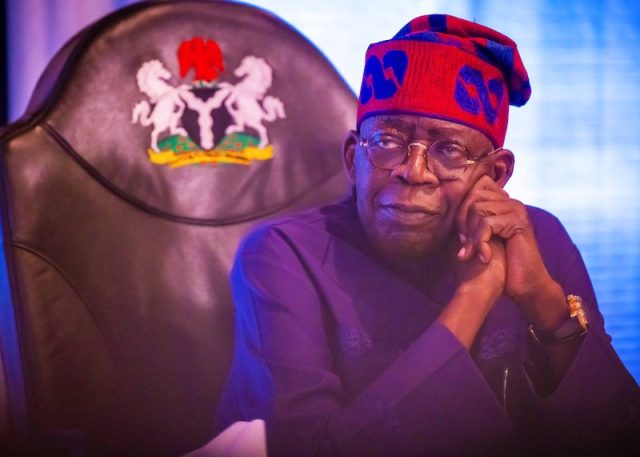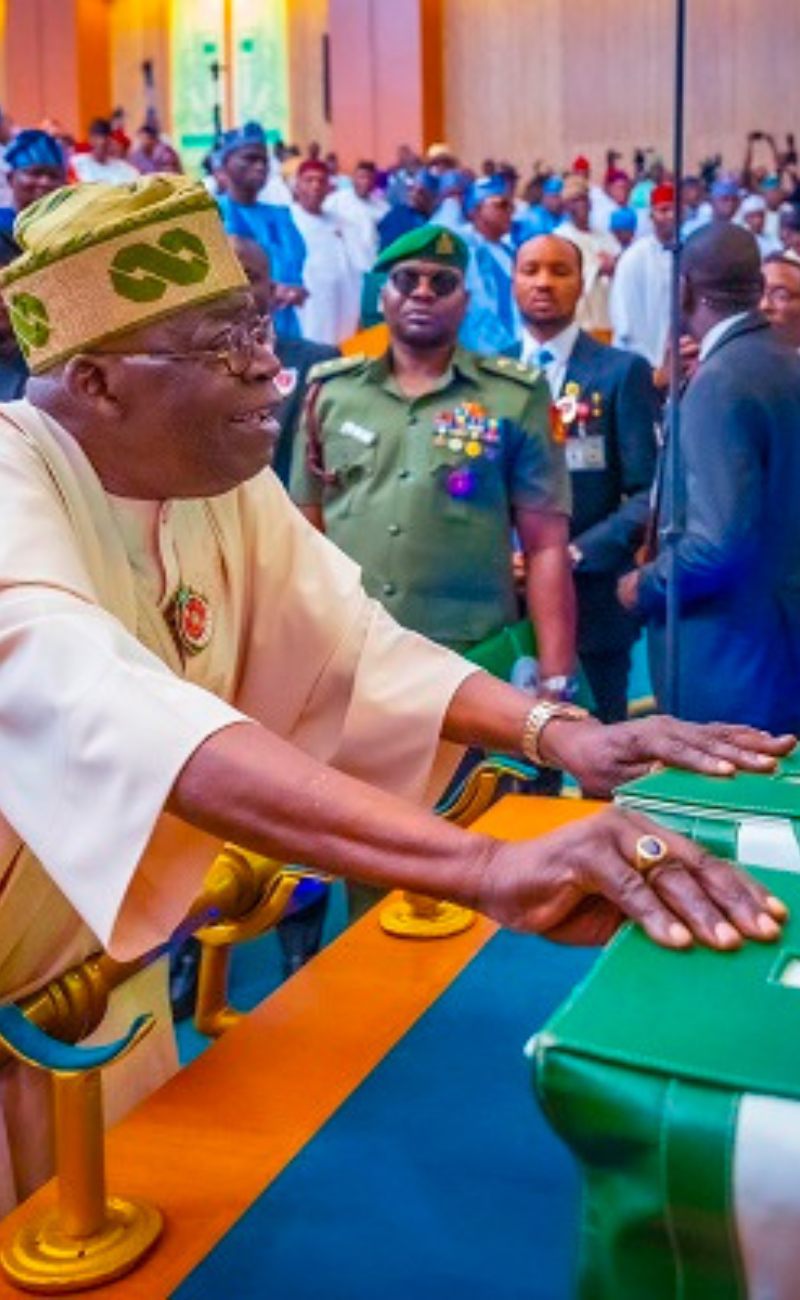The 2024 budget deficit will be financed by new borrowing totaling N7.83 and N298.40 billion from privatisation proceeds and N1.95 trillion drawdown on multilateral and bilateral loans for specific development projects.

President Bola Tinubu has listed Nigeria’s national defense and internal security, local job creation, macroeconomic stability, investment environment optimisation, human capital development, poverty reduction, and social security as some of the priorities of the proposed 2024 budget.
This is even as he disclosed that the country’s internal security architecture will be overhauled to enhance law enforcement capabilities with a view to safeguarding lives, property, and investments across the country.
The President stated this during the presentation of the 2024 budget to a joint sitting of the Senate and The House of Representatives on Wednesday.
In his address, Tinubu said the Appropriation Bill prioritises human capital development, with particular attention to children as human capital remains the most critical resource for national development.
He also said “To improve the effectiveness of our budget performance, the government will focus on ensuring value for money, greater transparency, and accountability. In this regard, we will work more closely with development partners and the private sector.
READ ALSO: The Budget: What it means and why it is important
On concerns with the education sector, Tinubu said, “A more sustainable model of funding tertiary education will be implemented, including the Student Loan Scheme scheduled to become operational by January 2024.”
He further said that “A stable macro-economic environment was crucial in his administration’s bid to catalyze private investment and accelerate economic growth, hence, his government shall continue to implement business and investment-friendly measures for sustainable growth.
The President continued, “We expect the economy to grow by a minimum of 3.76 percent, above the forecasted world average. Inflation is expected to moderate to 21.4 percent in 2024. In preparing the 2024 Budget, our primary objective has been to sustain our robust foundation for sustainable economic development. A critical focus of this budget and the medium-term expenditure framework is Nigeria’s commitment to a greener future.
“Emphasising public-private partnerships, we have strategically made provisions to leverage private capital for big-ticket infrastructure projects in energy, transportation, and other sectors. This marks a critical step towards diversifying our energy mix, enhancing efficiency, and fostering the development of renewable energy sources. By allocating resources to support innovative and environmentally conscious initiatives, we aim to position Nigeria as a regional leader in the global movement towards clean and sustainable energy.
“As we approach the COP28 climate summit, a pivotal moment for global climate action, I have directed relevant government agencies to diligently work towards securing substantial funding commitments that will bolster Nigeria’s energy transition. It is imperative that we seize this opportunity to attract international partnerships and investments that align with our national goals. I call upon our representatives to engage proactively to showcase the strides we have made in the quest to create an enabling environment for sustainable energy projects.
READ ALSO: Tinubu seeks approval for fresh $8.6bn, £100m loans
“Together, we will strive for Nigeria to emerge from COP28 with tangible commitments, reinforcing our dedication to a future where energy is not only a catalyst for development but also a driver of environmental stewardship,” he said.
According to the President, after a careful review of global oil market trends, an oil price benchmark of 77.96 U.S. Dollars per barrel, a daily oil production estimate of 1.78 million barrels per day, and an exchange rate of N750 to $1 were adopted for 2024.
Additionally, Tinubu reiterated his administration’s commitment to general economic prosperity even as it reviews social investment programmes to improve implementation and effectiveness.“In particular, the National Social Safety Net project will be expanded to provide targeted cash transfers to poor and vulnerable households.”
He added that efforts will be made to graduate existing beneficiaries toward productive activities and employment.
Further, he said that the government is currently reviewing tax and fiscal policies as its target is to increase the ratio of revenue to GDP from less than 10% currently to 18% within the term of his administration, adding that it will make efforts to further contain financial leakages through effective implementation of key public financial management reforms.
Other key points of the 2024 budget…
The government will focus on ensuring that citizens get value for their money, greater transparency, and accountability. “In this regard, we will work more closely with development partners and the private sector,” the President stated.
The economy is expected to grow by a minimum of 3.76%, above the forecasted world average. Inflation is expected to moderate to 21.4% in 2024.
The Government’s primary objective remains to “sustain our robust foundation for sustainable economic development. A critical focus of this budget and the medium-term expenditure framework is Nigeria’s commitment to a greener future.”
Projected debt service for 45% of the expected total revenue and the Budget deficit is projected at N9.18 trillion in 2024 or 3.88% of GDP, which is lower than the N13.78 trillion deficit recorded in 2023 which represents 6.11% of GDP.
The deficit will be financed by new borrowing totaling N7.83 and N298.40 billion from privatization proceeds and N1.95 trillion drawdown on multilateral and bilateral loans for specific development projects.



